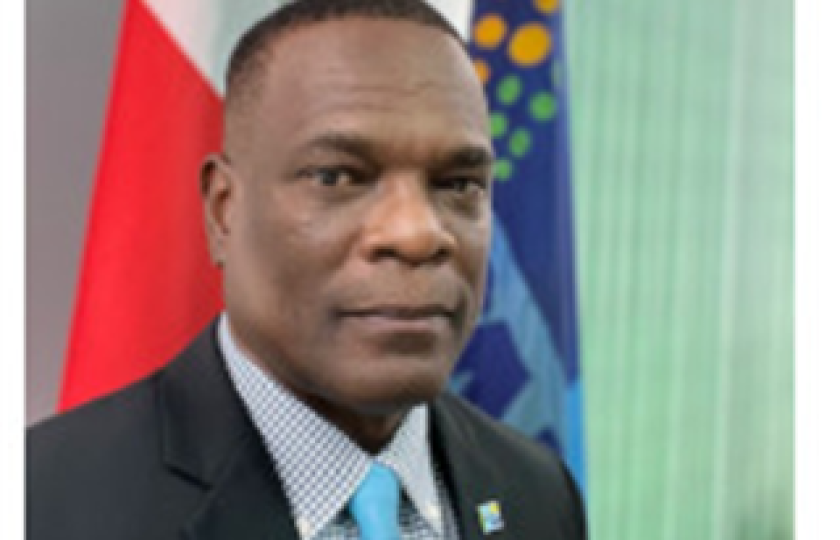Remarks by Mr. Brian Bogart, Country Representative and Country Director of the World Food Programme, at the Opening Ceremony, Caribbean Week of Agriculture,
7 October 2024
The COVID-19 pandemic, global conflicts, heatwaves, and hurricanes have all made it difficult for Caribbean people to eat in the last few years, leaving up to 3 million people classified as food insecure. Since the start of the pandemic people have consistently reported paying more for food. The 2024 Caribbean Food Security and Livelihoods survey saw 96 percent of respondents indicating increased food prices compared to 59 percent in 2020.
Even as the region was dealing with the disruptions caused by the pandemic, conflict in Ukraine led to supply chain disruptions for key agriculture inputs like fertiliser, further exacerbating challenges in access to affordable food.
Coming out of the SIDS4 conference in Antigua and Barbuda, earlier this year, leaders reminded the world of the need to scale up climate-resilient best practices in agriculture and fisheries to mitigate against food insecurity for small island states. Months later we saw precisely why this is needed. Hurricane Beryl ripped through the region in July, displacing thousands of people from their homes and livelihoods. In Jamaica, flooding in St. Elizabeth, a breadbasket for national food production, disrupted crop production. The fishing sector in Barbados suffered significant losses with vessels destroyed and many people left without work. Cash crops were ransacked in Grenada. Right here in St. Vincent and the Grenadines, we have heard of fisherfolk whose vessels were damaged. The losses and damage to crop production and processing will have a lingering impact. In the aftermath of a crisis like Hurricane Beryl, access to resources for quick recovery is often a concern.
Through a WFP designed model, Grenada was able to access millions from its disaster insurance payouts for direct cash assistance to vulnerable people Linking social protection and insurance serves to reduce risk in key sectors like agriculture.
While work to make the region’s food value chain more resilient started well before this year’s hurricane season, the impact so far makes it clear that climate adaptation in food systems must be paramount.
CARICOM’s vision 25 by 2025 stands at the center of this process, the entire project offers a framework for establishing systems and procedures which set the wheels in motion for a more resilient food value chain in the Caribbean. WFP is proud to support this initiative. The achievements to date must be celebrated. The expansion of crop production, development of new trade policies and research into optimizing resources along with climate adaptation, are all great positives for the region’s food sovereignty.
In collaboration with the Caribbean Community (CARICOM), WFP supports efforts to better understand the drivers and trends of food insecurity in the region. Starting in 2020, WFP and CARICOM have produced 7 rounds of the Caribbean Food Security and Livelihoods survey. The study has become important in understanding the state of food insecurity in this region specifically. Very soon we will launch another data tool, the Caribbean Real Time Food Security Dashboard. This new dashboard will provide live tracking of food consumption trends, enabling a day-to-day picture of how people meet their most basic and essential need… food. We expect that this dashboard alongside the annual Caribbean Food Security and Livelihoods survey, will provide governments, the humanitarian and development community with knowledge to better implement strategies targeted to the people who need the greatest support even before reaching the point of crisis.
Creating sustainable food systems in the Caribbean requires a multifaceted approach. We must elevate the roles of women and youth, who are often underrepresented in agriculture. In St. Vincent and the Grenadines, for instance, the WFP’s WeCan Project is equipping 300 individuals—including those with disabilities, unemployed youth, and single mothers—with vital farming and life skills. This initiative promotes economic independence and resilience. Under our mandate to support achieving SDG 2: Zero Hunger, WFP looks forward to engaging the private sector to strengthen food value chains. With the supply chain challenges that exist in the Caribbean, we are ready to share our expertise to tackle this persistent issue, both within and across borders. In addition to considerations for moving goods from one country to another, access to efficient systems to direct produce from rural to urban areas, from smallholder farmers to large buyers within countries are essential to shifting the balance and moving the needle on the 25 by 2025 initiative.
WFP is working with CARICOM and national actors to strengthen national and regional food systems in the Caribbean. By leveraging WFP expertise and resources, national school meals programmes in Jamaica, Guyana and St. Vincent and the Grenadines are exploring options for increased access to locally grown foods. The lessons learned will be of value across the Caribbean. Again, I share with you WFP’s commitment to working with all stakeholders in the region to build more resilient food systems that offer a future that is characterized by access to nutritious food for all.

